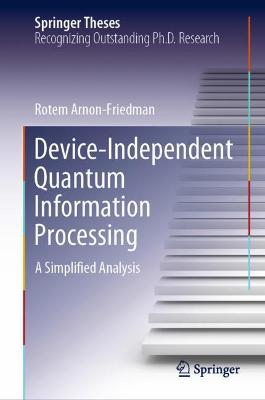Springer Theses
1 total work
Device-independent quantum cryptography is a method for exchanging secret messages over potentially insecure quantum communication channels, such as optical fibers. In contrast to conventional quantum cryptography, security is guaranteed even if the devices used by the communication partners, such as photon sources and detectors, deviate from their theoretical specifications. This is of high practical relevance, for attacks to current implementations of quantum cryptography exploit exactly such deviations. Device-independent cryptography is however technologically so demanding that it looked as if experimental realizations are out of reach.
In her thesis, Rotem Arnon-Friedman presents powerful information-theoretic methods to prove the security of device-independent quantum cryptography. Based on them, she is able to establish security in a parameter regime that may be experimentally achievable in the near future. Rotem Arnon-Friedman's thesis thus provides the theoretical foundations for an experimental demonstration of device-independent quantum cryptography.
In her thesis, Rotem Arnon-Friedman presents powerful information-theoretic methods to prove the security of device-independent quantum cryptography. Based on them, she is able to establish security in a parameter regime that may be experimentally achievable in the near future. Rotem Arnon-Friedman's thesis thus provides the theoretical foundations for an experimental demonstration of device-independent quantum cryptography.
